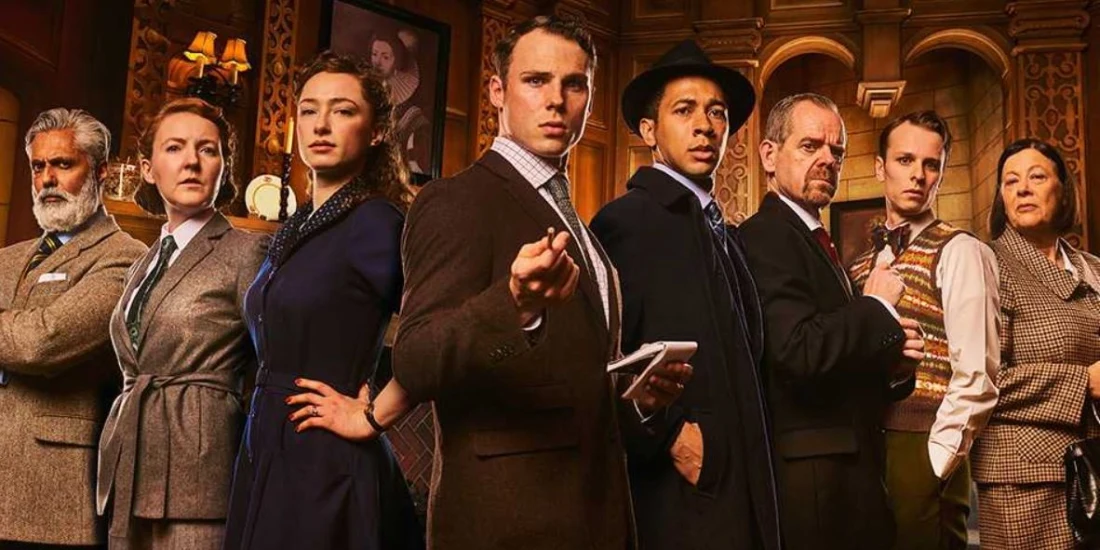
Learn more about Agatha Christie plays in London
Agatha Christie is one of the best-selling fiction writers of all time, with her novels having sold more than two billion copies in 44 languages.
There’s no one quite like the Queen of Crime. Renowned for her vivid characters, fiendishly twisty plots and unparalleled exploration of the dark side of human nature, Agatha Christie remains one of the most beloved murder mystery writers of all time.
All those ingredients that make Christie an exceptional novelist translate brilliantly to drama. Her books have been adapted countless times, including the wonderful David Suchet TV series of Poirot’s cases, and Kenneth Branagh’s recent big-screen versions.
But it’s on stage that her work is most gripping – and, in fact, Christie is the only female playwright to have three plays running at the same time in the West End. She wrote more than 20 stage plays, and holds another record for writing the longest-running show in the world.
From last-longing shows like The Mousetrap through to more recent hits like the site-specific Witness for the Prosecution, Christie’s plays are a key part of London’s theatre scene. Here’s our guide to her work on stage, plus all the Agatha Christie shows that you can book for now.
Agatha Christie on stage
The first time that a Christie novel was dramatised for theatre was in 1928, when Michael Morton brought her The Murder of Roger Ackroyd to the stage – renamed Alibi. The show ran at the Prince of Wales Theatre, with Charles Laughton starring as Belgian detective Hercule Poirot, for a decent 250 performances, and then transferred to Broadway.
However, Christie was frustrated by Morton’s changes, so from then on she adapted all her novels for stage herself. The first was Black Coffee, which premiered in the West End in 1930, followed by Love From A Stranger, And Then There Were None, Appointment With Death, Murder on the Nile, The Hollow and many more.
While most of her plays were adaptations of her hit crime novels, so stayed in that murder mystery/thriller genre, she experimented with other kinds of work too. For example, her 1937 play Akhnaton saw her draw instead on her passion for ancient history: it was about a young Pharaoh in Egypt in 1350 BC.
But it’s Christie’s extraordinary gift for crime writing that has made a theatrical mainstay – and ensured that generation after generation is still eager to test their wits against Christie and see if they can work out “whodunit”. That’s why audiences are flocking to productions like the current UK tour of And Then There Were None, plus two London favourites: The Mousetrap and Witness for the Prosecution.
The Mousetrap
This remarkable production actually began as a radio play, which Christie wrote as a birthday present for Queen Mary in 1947. Christie sketched it out first as a short story, but asked that the story not be published in the UK as long as the stage play was still running – so it’s never been published!
The title riffs on the play-within-a-play that Shakespeare’s Hamlet stages in order to get his murderous uncle, Claudius, to confess his guilt. That play is actually called The Murder of Gonzago, but The Mousetrap is Hamlet’s taunting name for it.
The premise is stone-cold classic Christie: people trapped together in a confined space, a murderous threat, secrets unfolding, and a fantastic climactic twist (which audiences are asked to keep to themselves when they leave The Mousetrap).
Seven strangers are stuck in a guest house, Monkswell Manor, during a sudden snowstorm – and the phone lines are down. Sergeant Trotter fills them in on the recent murder of a woman who abused her foster children for years; police suspect that her killer is on the loose nearby. All of the residents claim ignorance. But whose story can you trust, who is the murderer, and will they strike again?
The Mousetrap premiered in October 1952 in Nottingham, went on a short UK tour, and then began its West End run at the Ambassadors Theatre that November, starring Richard Attenborough and Sheila Sim. It transferred to the larger St Martin’s Theatre in 1974, and has been a London institution ever since. Elizabeth II attended its 50th anniversary in 2002, while for the 25,000th performance, in 2012, the cast featured Patrick Stewart, Hugh Bonneville, Julie Walters and Iain Glen.
Christie herself would be astonished: she thought the show would last about eight months. Instead, it’s become the world’s longest-running play. A UK tour is also taking place to celebrate its 70th anniversary, but according to the terms of the original contract, no film adaptation can be made unless the West End production has been closed for six months or more. So, the only place you can experience The Mousetrap is in the theatre.
Book The Mousetrap tickets on London Theatre.
Witness for the Prosecution
Leonard Vole is on trial for his life. The young man is accused of murdering a wealthy, elderly woman, Emily French, and it seems his only chance at escaping the hangman’s noose is the alibi provided by his wife, Romaine. But can he – and we – trust her? And will justice be served?
Witness for the Prosecution is absolutely made for the theatre, since it’s mostly a riveting courtroom drama. Christie adapted it from her short story Traitor’s Hands, and it opened in September 1953 in Nottingham, then had its West End premiere at the Winter Garden Theatre that October.
The play was an instant smash – meaning Christie had three hit plays running in London, along with The Mousetrap and Spider’s Web – and Witness for the Prosecution continued that success on Broadway. Christie won an Edgar Award from the Mystery Writers of America and a Critics’ Circle Award, while the show’s stars Patricia Jessel and Francis L Sullivan both won Tony Awards.
More adaptations followed, including a Billy Wilder movie in 1958 starring Charles Laughton and Marlene Dietrich, but it’s as a site-specific theatre production that the show has found its best and most lasting form.
In October 2017, Lucy Bailey’s new staging of Witness for the Prosecution premiered in the debating chamber of the historic London County Hall – an awe-inspiring building on the South Bank that once housed the London County Council.
It’s an incredibly atmospheric setting for this courtroom drama, with its high ceiling, huge marble columns, and red leather benches where the audience sits, totally immersed in the story. You can even book special seats that put you in the jury box. But wherever you sit, you feel part of this enthralling drama, where the verdict really is life-or-death.
Book Witness for the Prosecution tickets on London Theatre.
Originally published on










